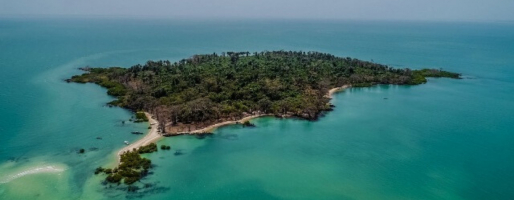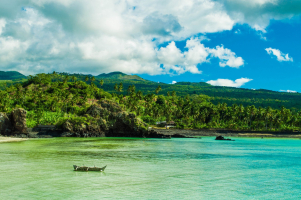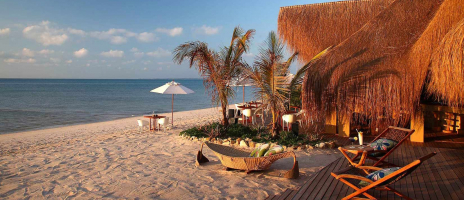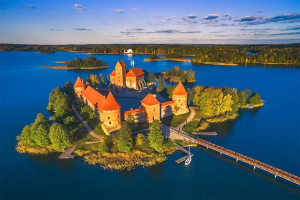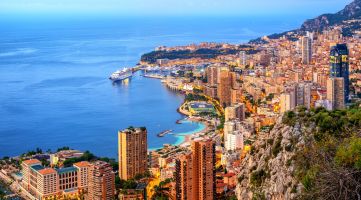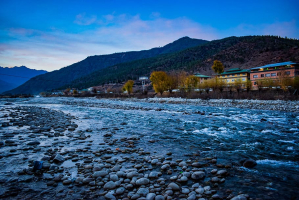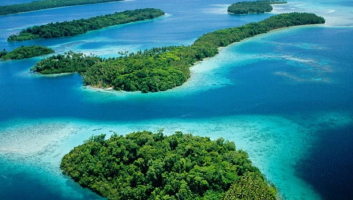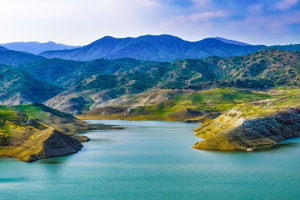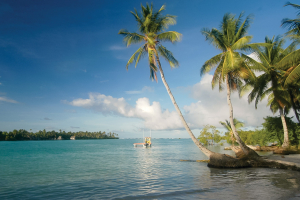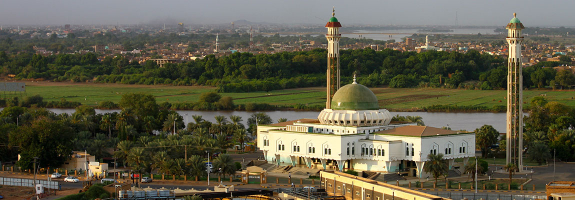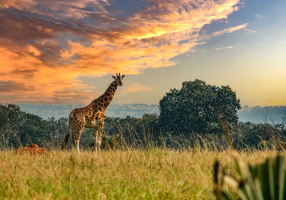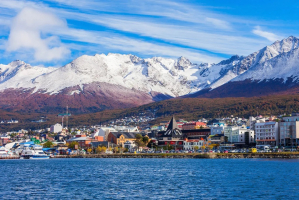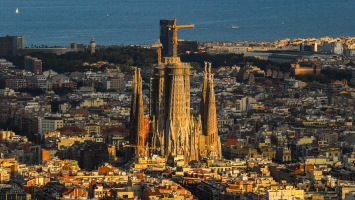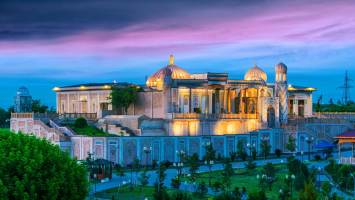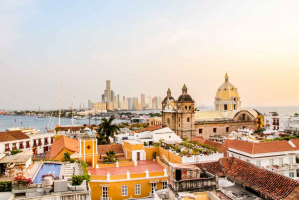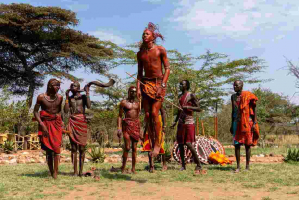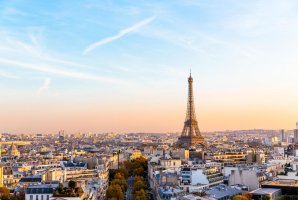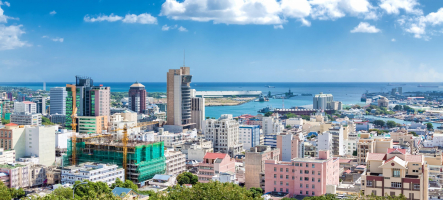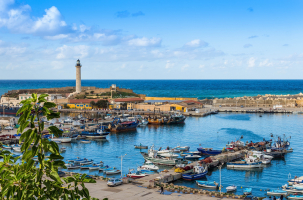Top 12 Things to Know Before Traveling to Iraq
Iraq is a Middle Eastern country. Kuwait, Jordan, Saudi Arabia, Syria, Iran, and Turkey are some of this country’s neighbors. The official languages of the ... read more...republic are Arabic and Kurdish, and Baghdad is Iraq's capital (from Arabic, the Gift of God). With a population of just over 7 million people, it is one of the largest cities in the Middle East. To help you learn more about this country, Toplist has compiled a list of the things to know before traveling to Iraq.
-
Iraq is not a safe country to visit in general, due to its complicated political situation and the chaos that has engulfed the country and its neighbors. That is the reason why many people strongly advise that you avoid visiting Iraq at this time.
Iraq has a reputation for being one of the world's most dangerous countries, but the country's security situation has significantly improved in recent years. For those who are more concerned about their safety while traveling in Iraq, it is strongly advised to join a group tour or plan a private trip with a local guide or company, where these details will be handled and mitigated by a local team. Traveling with a local guide or a tour group can be advantageous, not only because you will be able to breeze through all checkpoints, but also because good local guides are always up to date on the latest security updates. This is absolutely one of the things to know before traveling to Iraq that Toplist would like to share with you.
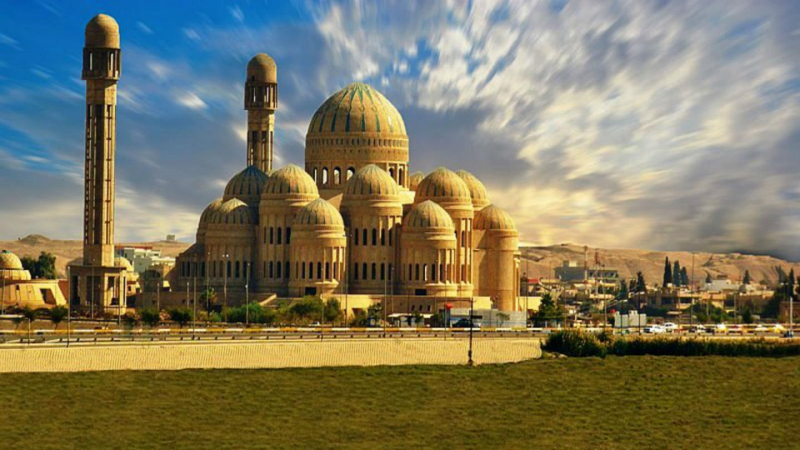
Photo: mustvisitplace.com 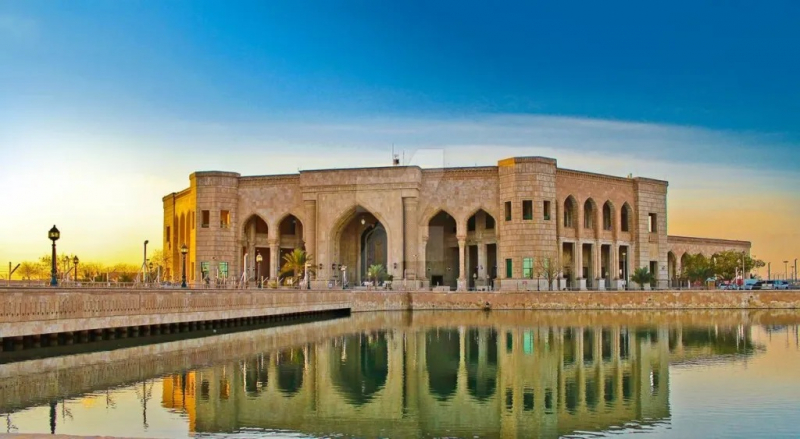
Photo: arabamerica.com -
Most visitors from most countries require a visa to enter Iraq. You will be deported if you attempt to enter the country without a valid entry or work visa. A visa costs around $ 80 and can be purchased at border crossing points. Individual visitors usually take 1 hour to cross the border. Assume a visitor requires a visa to enter the country. In that case, they must plan ahead for a lengthy wait and bring several documents to the Iraqi embassy proving their identity and the reason for their visit. Accepted letters on company or government letterhead are the most common. Baghdad officials are reviewing the applications. You may be denied entry even if you obtain a visa. You should start preparing as soon as possible and ensure that you have all of the required documents.
It is worth noting that there are two types of Iraq visas: one for Federal Iraq and another for Iraq Kurdistan. You can enter Iraqi Kurdistan with a Federal Iraq visa, but not the Federal (south/Arab) Iraq with an Iraqi Kurdistan visa.
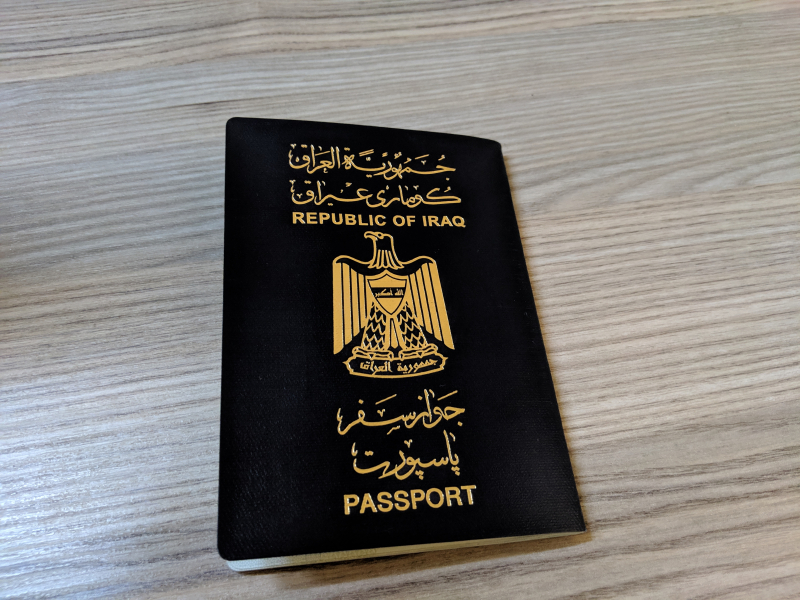
Photo: guideconsultants.com 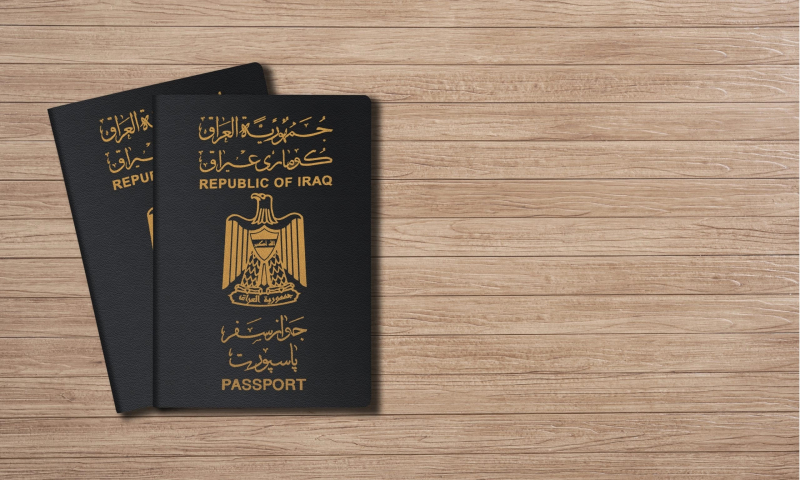
Photo: vietnamimmigration.com -
Iraq is hot and dry from late May to early September, with temperatures well above 40°C. The slightly cooler mountains to the north and east are your best escape route at this time. The weather is cool from November to February, with rain and snowfall, especially in the Iraqi Kurdistan mountains. With comfortable temperatures for exploring, the fall and spring months of October, November, March, and April are undoubtedly the best time to travel to Iraq. Kurdistan's weather is a little cooler, so September and May are also good months to visit.
In short, the best seasons to visit Iraq are autumn and spring. Summer months (June, July, and August) are best avoided due to extreme heat across the country. Winter in Iraq can be a pleasant experience but expect cool temperatures, especially in Iraqi Kurdistan. Rain is more likely this time of year, so you need to bring a warm waterproof jacket. This is one of the things to know before traveling to Iraq.
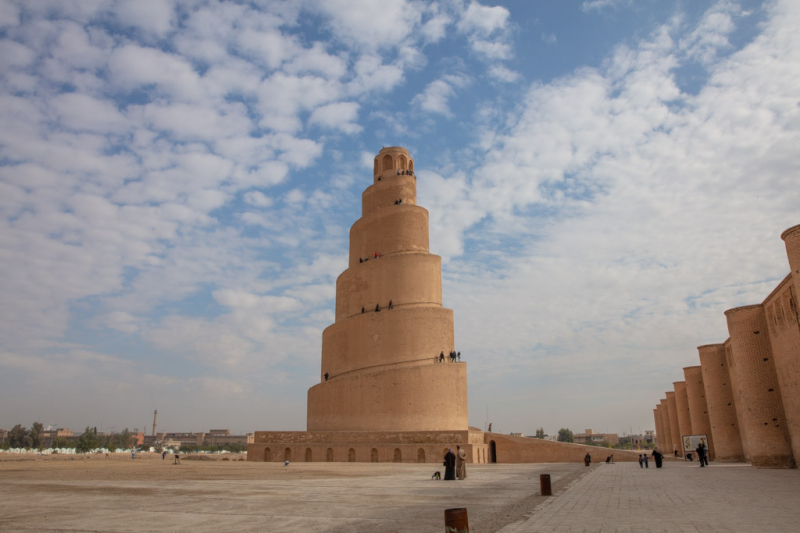
Photo: adventuresoflilnicki.com 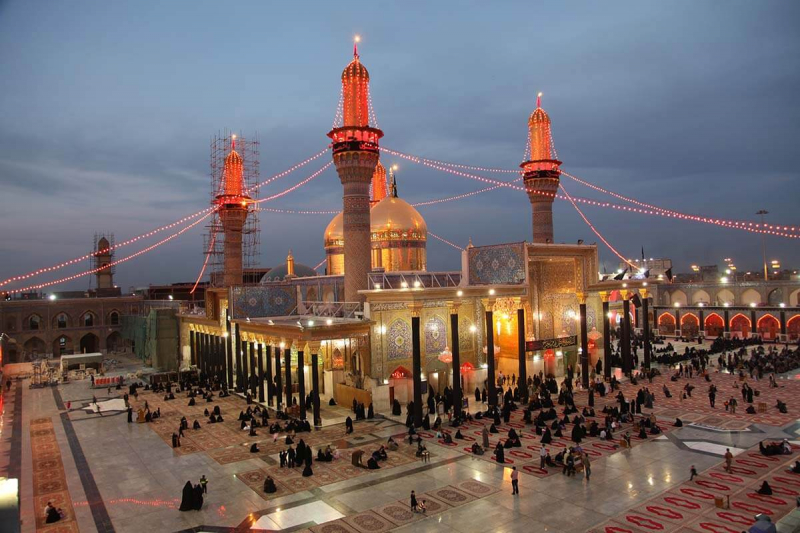
Photo: theglobetrottingdetective.com -
In Iraq, taxis are the safest and most common mode of public transportation, particularly in major cities like Baghdad. Other modes of public transportation are uncommon because most drivers prefer to stay within city limits. Although the cost is high, some taxis travel to Kirkuk and Mosul. Taxi rides within the city, on the other hand, are affordable and plentiful. Taxis in Iraq do not have fixed fares or meters, so make sure you agree on a price before boarding. Fares are usually determined by the distance traveled and are open to negotiation. Some businesses hire English-speaking drivers, primarily for the airport-city-center route.
In addition, you can rent a car in Baghdad, and the majority of car rental companies are located at the airport. Because of the increased control of civilian movement as a result of the Iraq war, always follow the authorities' instructions if you come across a military checkpoint. In Baghdad, bus services are available, but they primarily serve the city and suburbs. Buses run between Kurdistan cities, but schedules are inconsistent.
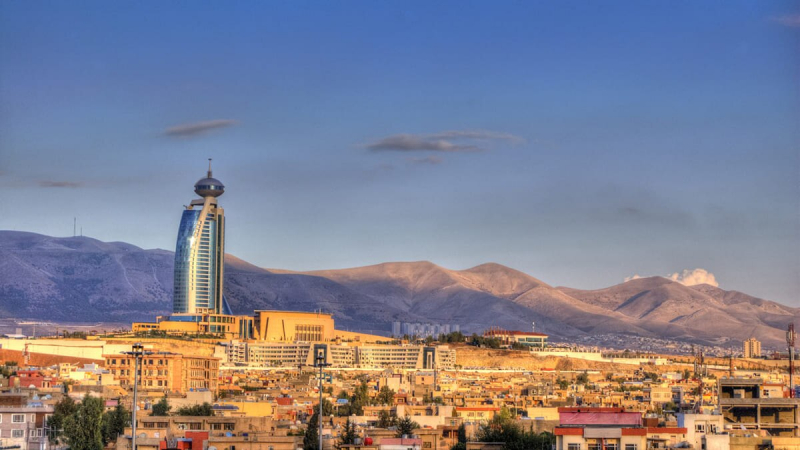
Photo: skyticket.com 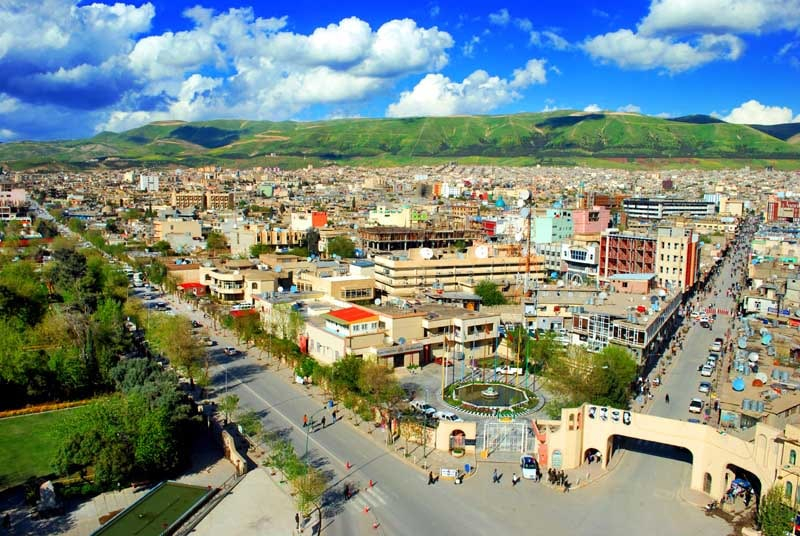
Photo: thecrazytourist.com -
You might imagine smoky battlefields, cruise missiles, and charging tanks when you think of Iraq. Years of conflict have engulfed this country, and while political strife persists, there is much more to see here than just the scars of war. In fact, natural wonders abound in this country, making it an amazing place to enjoy great landscapes.
Toplist has compiled some places to visit in Iraq for you. Baghdad is the capital and most populous city of Federal Iraq. Baghdad is likely to be your first stop in Iraq, so be prepared for a whirlwind of sights, smells, foods, and interactions. In addition, Hatra is known for its iconic ruins, but it has historically been difficult to visit. Besides, a trip to ancient Babylon would be incomplete without a stop in Iraq. You will most likely spend the better part of a day exploring all of the historic sites that once made up the famed ancient capital.
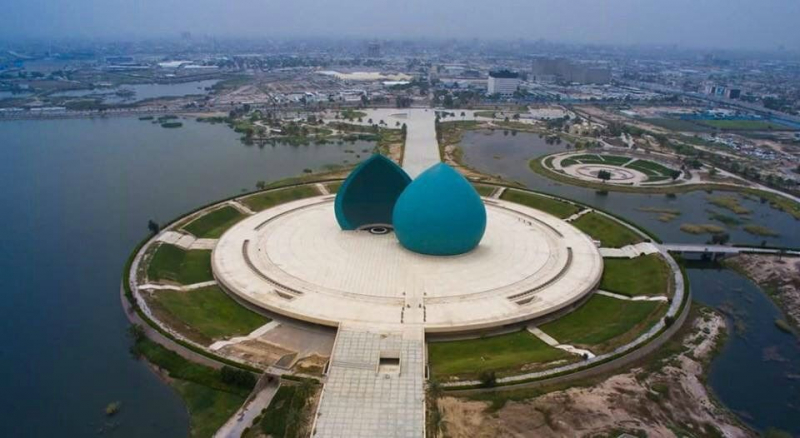
Photo: youngpioneertours.com 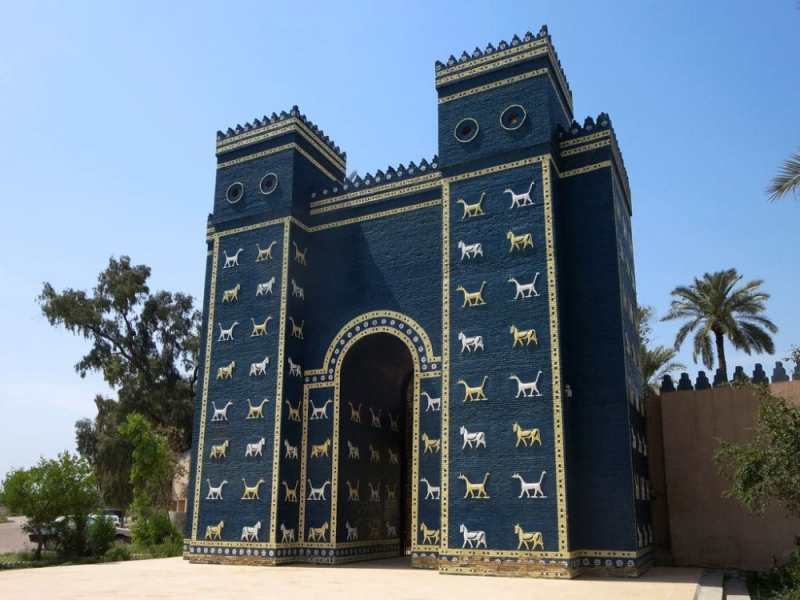
Photo: worldview.stratfor.com -
The Iraqi Dinar is the country's official currency, and it is currently trading at 1,460 ID to $1 USD (May 2022). In most cities, you can easily exchange dollars for dinars (the Euro and the British Pound are not as popular with exchangers). Many hotels also provide currency exchange services (at a slightly lower rate), and larger purchases are usually made in US dollars.
In Iraq, cash is still king, so you will have to pay in cash for most things; however, in some more upscale hotels and restaurants, you might be able to pay with a card. In general, ATMs in Iraqi Kurdistan, particularly in Erbil, Sulaymaniyah, and Dohuk, are more reliable. ATMs are more likely to be out of service in southern Iraq, but withdrawing money is not impossible. Nonetheless, bringing cash to the exchange is a good idea. This is actually one of the most important things that you need to remember when traveling to this country.
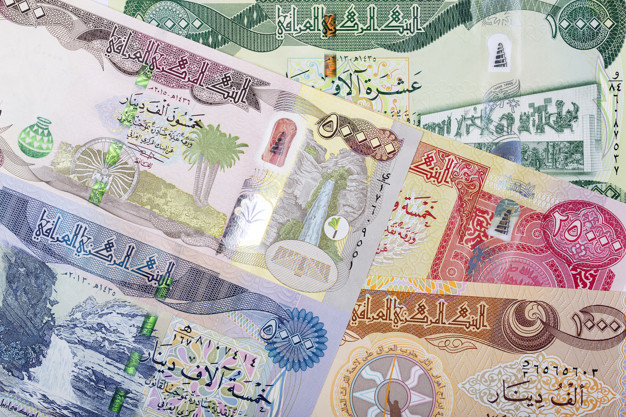
Photo: youngpioneertours.com 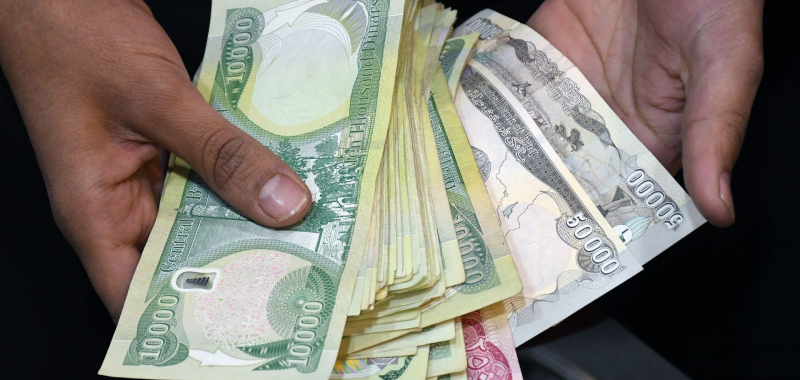
Photo: worldview.stratfor.com -
Iraq is divided into two climate provinces, including the hot and arid lowlands and the northeast with high elevation contributes to cooler temperatures. Summer and winter are the two seasons in the lowlands, with short transition periods between them. Summer is defined by clear skies, excessively hot temperatures, and low relative humidity. It lasts from May to October. In July and August, the average daily temperature in Baghdad, Iraq's capital, is around 35°C.
In the south of Iraq, winter brings only rain, and snowfall is uncommon. It lasts almost the entire year, from November to April. Summers in the northeast are shorter than in the lowlands from June to September, and winters are significantly longer. Summers are dry and hot, with an average temperature of 7°C. The region's high terrain and the influence of north-easterly winds bringing continental air from Central Asia can make winters bitterly cold.
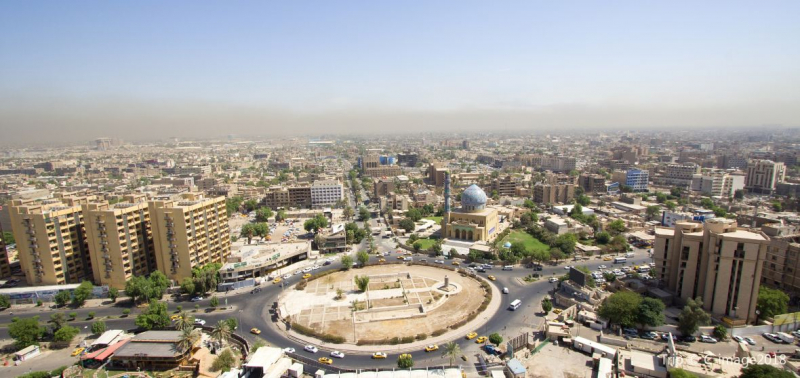
Photo: vn.trip.com 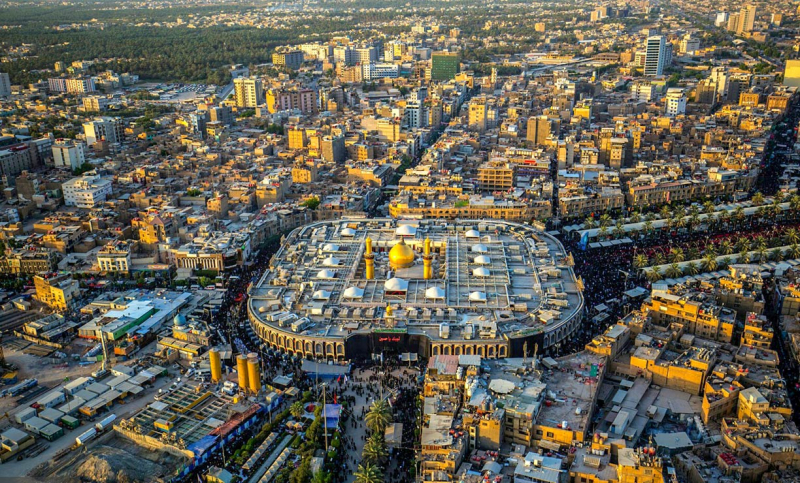
Photo: nationsonline.org -
Iraq is one of the Middle East countries that has been hardest hit by sandstorms. The number of such cases has risen dramatically in the last decade and continues to rise. Regional and local sand and dust storms occur in this country. The former is, however, more common than the latter. A regional event typically extends beyond the territory of Iraq in various directions. In this article, the main causes of sand and dust storms in Iraq are discussed. However, the former causes greater economic losses and has more serious health consequences than the latter.
Climate change in the region, particularly a sharp decrease in the annual rate of rain and environmental changes such as swamp drying, land degradation, and desertification, are among the main causes of sand and dust storms. Sound water management, including the use of unconventional resources and the adaptation of appropriate irrigation methods, can significantly aid in the reduction of sandstorms.
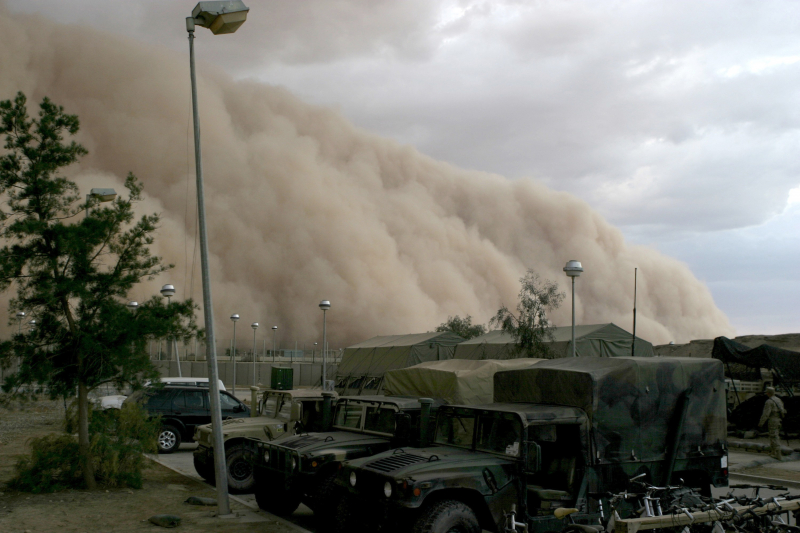
Photo: vi.m.wikipedia.org 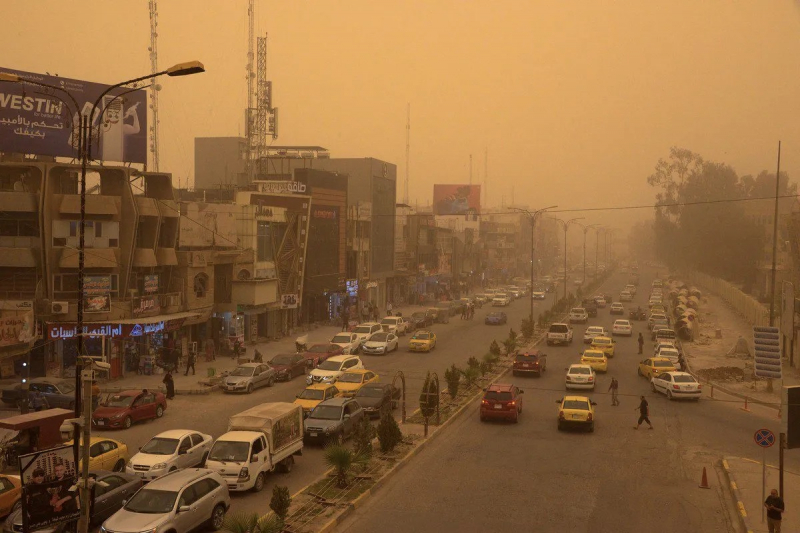
Photo: middleeastmonitor.com -
The checkpoint in Iraq is one of the things that Toplist would like to share with you. On your journey through Iraq, you will undoubtedly pass through numerous checkpoints. In general, some checkpoints are easy, though some are more difficult than others. Checkpoints can be found as you enter almost every city, as well as along the roads that connect them.
Typically, they will simply look through your passport for your ID page and your Iraqi visa, and the officers may even engage in conversation with you or request a photo. In South/Arab Iraq, checkpoints are mostly manned by Iraqi police or military, while in Iraqi Kurdistan, they are mostly manned by Peshmerga. Some checkpoints, however, are controlled by armed militia groups. Samarra, Nasiriyah, Mosul, and the border between Iraq and Iraqi Kurdistan are all checkpoints that have a reputation for being more difficult or requiring more scrutiny. This is one of the things to know before traveling to Iraq.
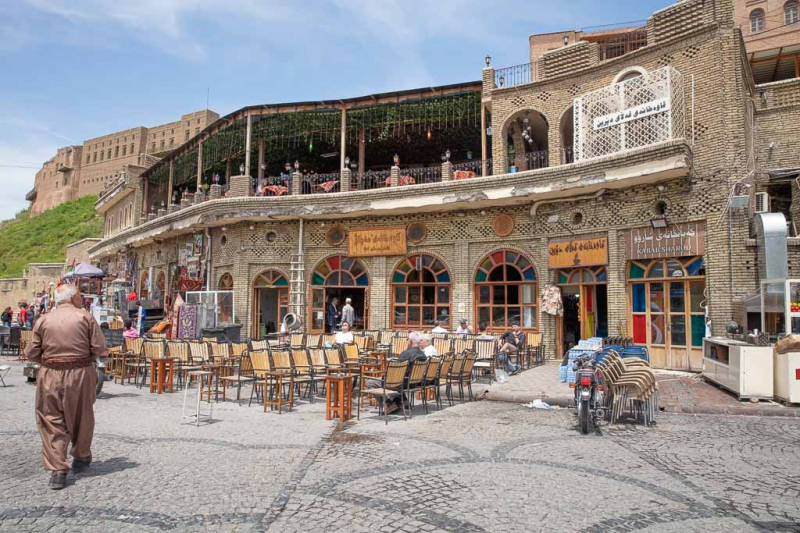
Photo: adventuresoflilnicki.com 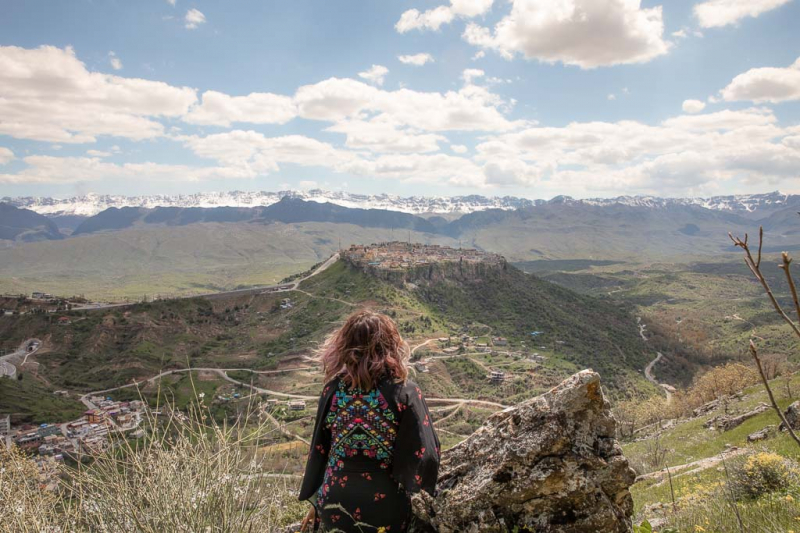
Photo: adventuresoflilnicki.com -
"Where to stay" is also one of the things to know before traveling to Iraq that Toplist would like to share with you. The republic does not resemble the dilapidated buildings and desolate steppe depicted in popular Iraqi films. Iraq does not have many hotels, but it does have hotels. They are primarily concentrated in Iraq's capital. However, since the end of large-scale military operations in Iraq, living conditions have improved. More and more hotels in Iraq are meeting Western quality standards, and the tourism sector still has room to grow, as many Iraqi cities lack even five-star hotels.
Tourists will be able to choose from a variety of prices that are affordable for all. The situation in Kurdistan is nearly identical and the number of hotels is increasing every year. One major disadvantage for the entire country is that renting houses to tourists is no longer fashionable. You will also have to limit your trips to Iraqi cities with hotels.
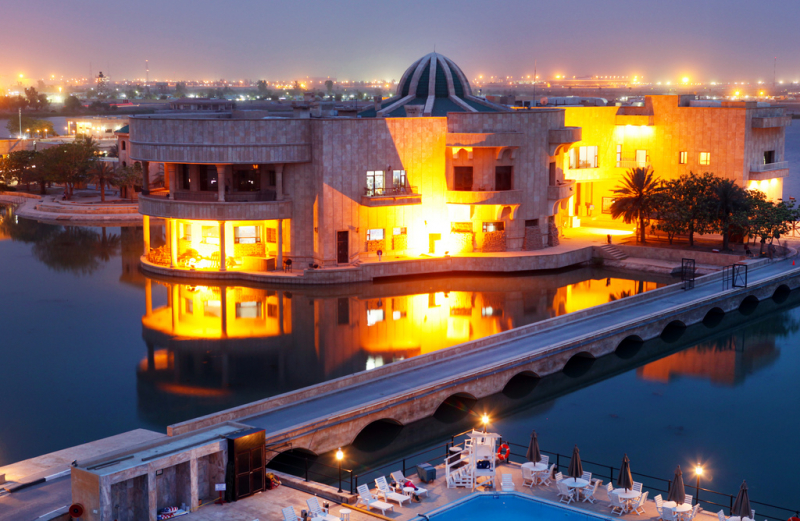
Photo: legacy.pulitzercenter.org 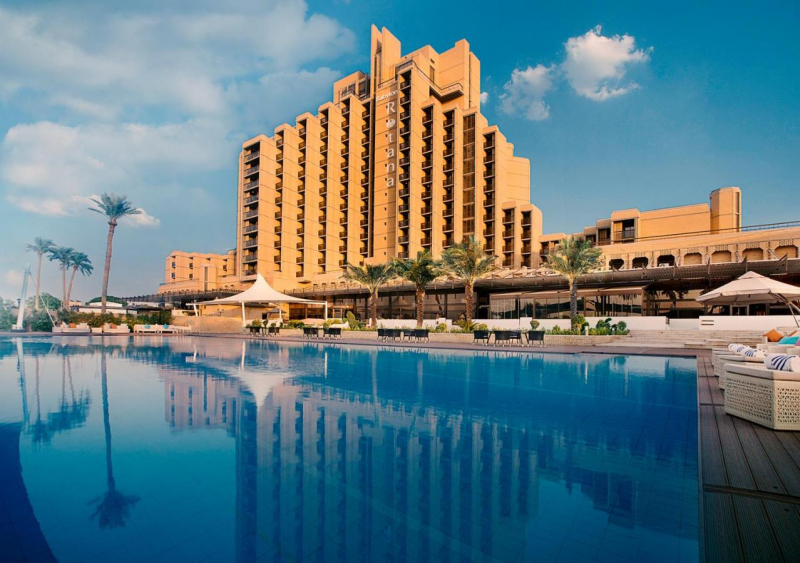
Photo: booking.com -
Food specialties are the next thing to know about Iraq that Toplist would like to introduce to you. Starting with the national dish is the best way to begin a journey through cuisine-specific dishes. The Masgouf fish, which has its origins in Mesopotamia, is truly extraordinary. The primary fish used are large freshwater carps and barbs caught straight from the Tigris River. In addition, Dolma is a popular dish among most diners. You will become addicted to this vegetable stuffed meat recipe. The most famous Iraqi version is Dolma Mahshi, in which the meat is stuffed with onions. This dish works well as a main course or an appetizer.
Moreover, Sfiha is a popular breakfast and appetizer option among locals. This dish is commonly referred to as "Arab Pizza", and it originated in the Arabian Peninsula and the Levant. When Levantine migrants arrived in South America, this recipe spread to many other countries, including Brazil. Besides, in the list of Iraqi lunch recipes, Kebab is a must-have. The origin of the Kebab is a point of contention, as Iraqis and Middle Easterners claim to have invented it. This grilled recipe, on the other hand, first appeared in Iraqi cookbooks in the 9th century.
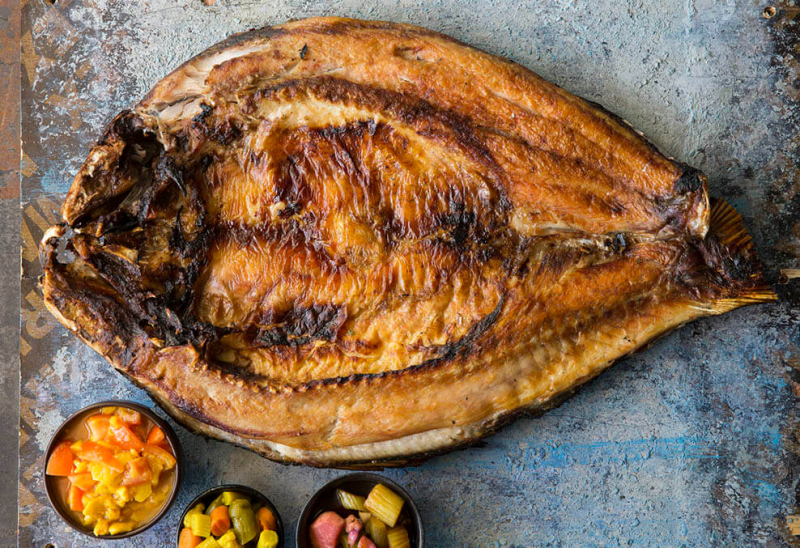
Masgouf fish. Photo: corporate.unioncoop.ae 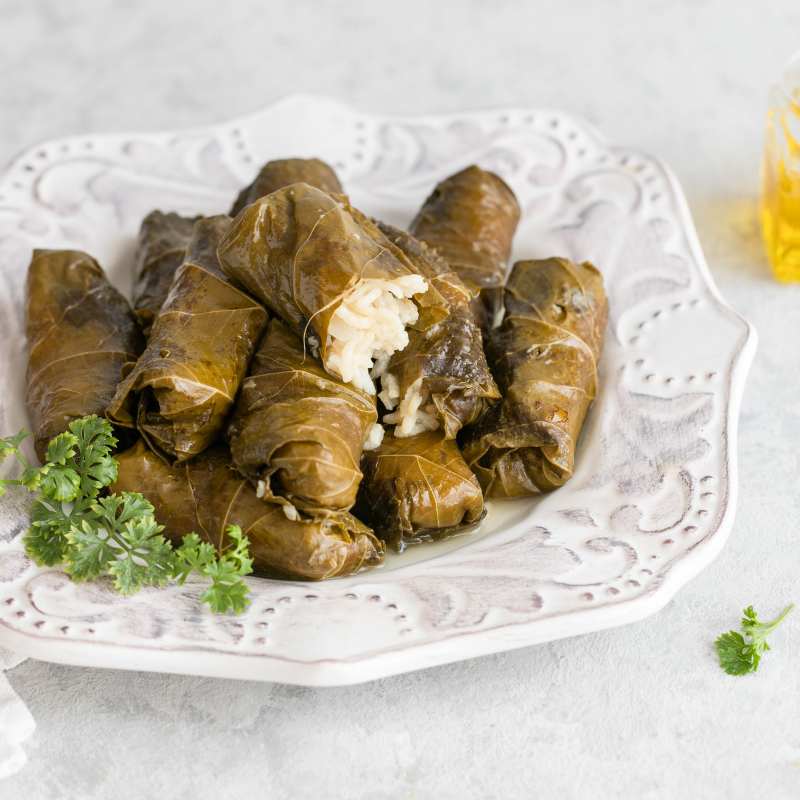
Dolma. Photo: thespruceeats.com -
Another thing you should know before traveling to Iraq is about the festivals in this country. Iraqi holidays include a variety of cultural events and religious celebrations, in addition to Islamic-based festivals and traditions.
Iraqis commemorate historical events such as Army Day (January 6), Republic Day (July 14), Ceasefire Day (August 8), Baghdad Liberation Day (April 9), and Iraqi Independence Day (October 3) throughout the year. One of the most famous festivals in this country that Toplist would like to introduce to you is the "Babylon International Festival". The Babylon International Festival is a once-a-year event that celebrates all forms of art and music. The festival celebrates science and culture through folkloric ensembles, singing, musicals, stage performances, seminars, workshops, and other activities, representing various cultures and civilizations. Its main goal is to pass on ancient traditions to younger generations in order to preserve them. From September 22 to October 1, the annual event will take place.
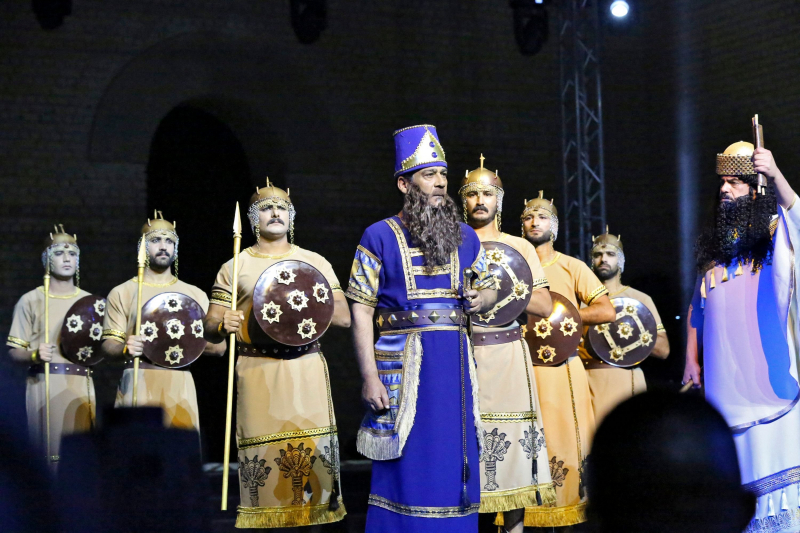
Babylon International Festival. Photo: dailysabah.com 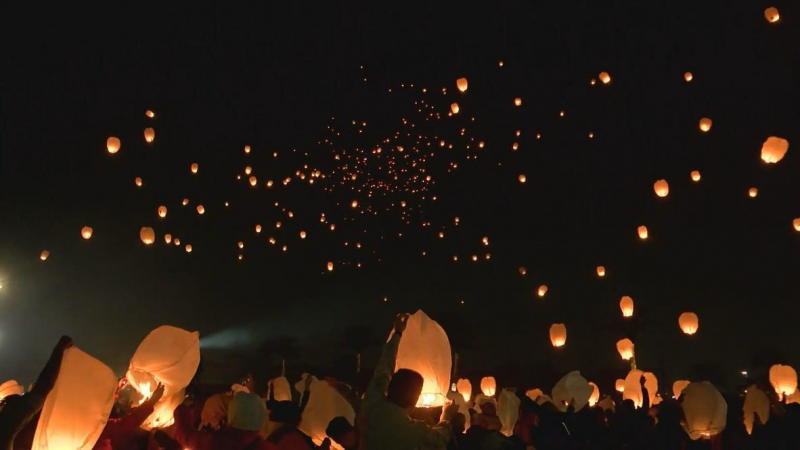
Photo: ruptly.tv














